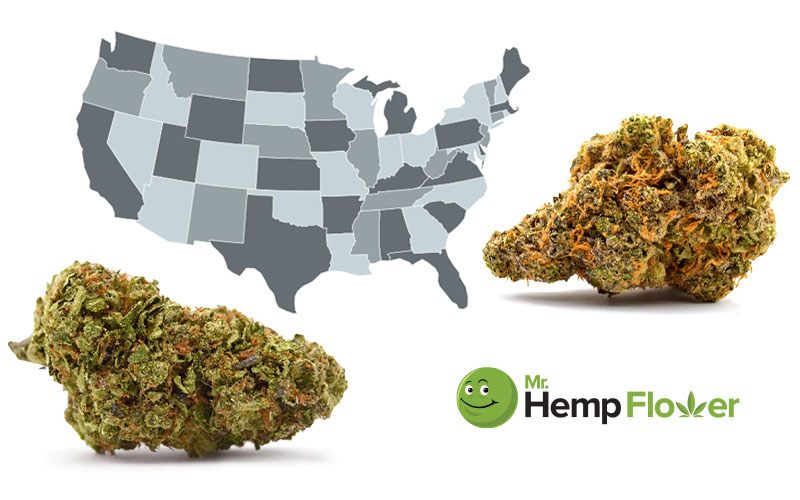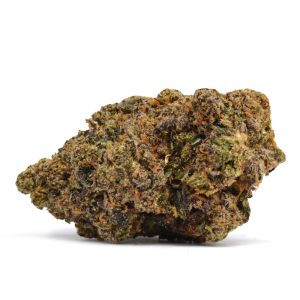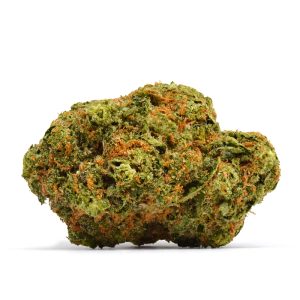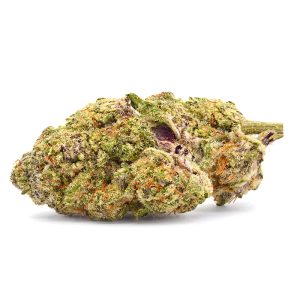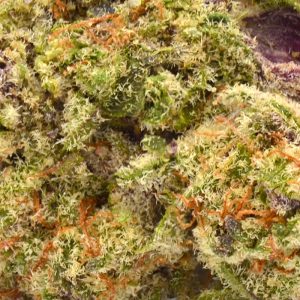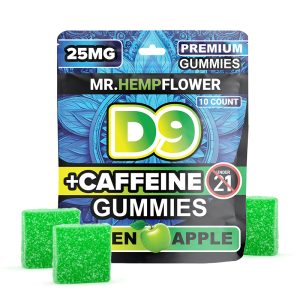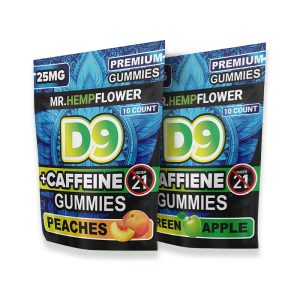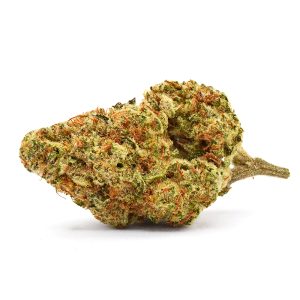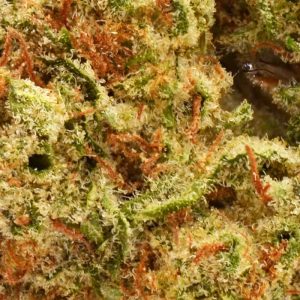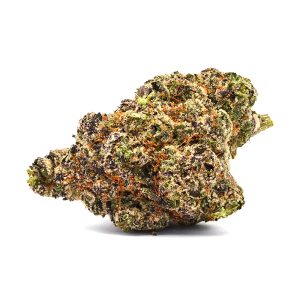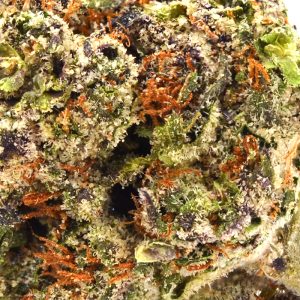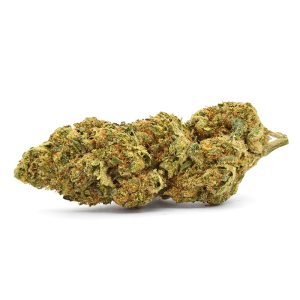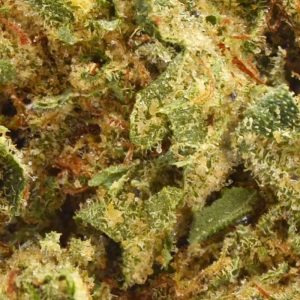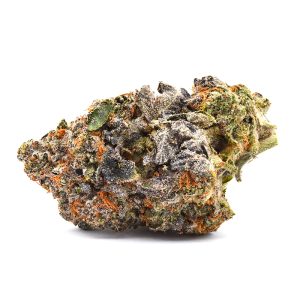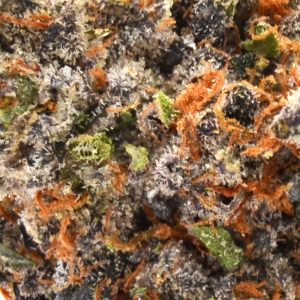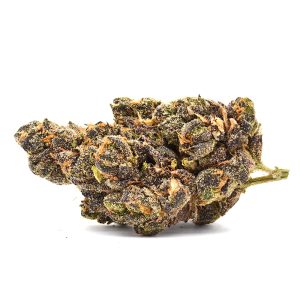The legal status of THCA flower is a hotly debated topic.
Some states outright ban the sale or production of smokable hemp, making THCA hemp flower illegal. Other states have conflicting laws that make it challenging to determine whether THCA flower can be bought lawfully.
This leaves plenty of room for interpretation on the legal status of THCA flower in each state. This article sheds light on the current regulatory status of this type of flower in the US. It also includes insights on how to determine the legal status of this product in your state.
Last Update: May 9, 2025
Article Summary
- Under the 2018 Farm Bill, THCA flower is a legal product if its delta 9 THC concentration doesn’t exceed 0.3% by dry weight.
- Federal law calculates the total THC levels (the sum of THC and THCA) in lawful hemp crops before harvesting (pre-harvest), not in the final product.
- At the state level, the legality of THCA flower depends on two main factors. The first one is whether or not the state imposes a total THC standard for finished hemp products. The second one is whether or not the state tests for total THC levels in post-harvest hemp.
- Some states amended their hemp laws to include a ‘total THC’ law for finished hemp products. Lawful hemp products sold at retail must contain a total THC concentration (accounts for the potential conversion of THCA into THC) of not more than 0.3%. A few examples of such states are California, Colorado, New York, etc.
- A few states, like Oregon and Rhode Island, require growers to test their hemp crops post-harvest. This means that lawful hemp crops in these states must contain less than 0.3% total delta 9 THC post-decarboxylation.
- THCA flower is legal in states that don’t have a ‘total THC’ testing requirement for finished hemp products.
- Some expert cannabis lawyers argue that testing finished hemp products for their total THC levels is unconstitutional because it changes the federal definition of hemp. Federally, hemp is still defined as a crop with a delta 9 THC levels of no more than 0.3% by weight.
Is THCA Flower Legal in My State?
Several factors determine the legal status of this type of flower under state law. The two most important are:
- Total THC levels in finished hemp products, and
- Total THC levels for post-harvest hemp
In a nutshell, if the state has a total THC law for finished hemp products and tests hemp crops post-harvest, THCA flower is likely illegal.
What’s the Total THC Law?
The ‘total THC’ law means that the state requires processors to test finished hemp products for their THC levels post-decarboxylation.
When exposed to heat, the THCA in hemp flower converts into delta 9 THC, which is known as decarboxylation. Decarboxylation is a testing methodology used on pre-harvest hemp to determine a crop’s THC concentration by considering the potential conversion of THCA into THC. The test reports the total available THC in a crop, calculated as the sum of the THC and THCA content.
Under federal law, testing for total THC is only for pre-harvest hemp. But, some states have set this requirement for finished hemp products and post-harvest hemp.
A great example of this is Oregon, which uses a total THC standard for post-harvest hemp. The state’s laws require that hemp products that contain more than 0.3% percent total THC must not be sold to a consumer unless the vendor is a licensed recreational or medical marijuana seller.
Another example is Louisiana. State law in Louisiana prohibits the sale of hemp for inhalation. In addition, any lawful consumable hemp product made, sold, and distributed within state lines shall not contain a total THC concentration of more than 1% by dry weight.
Under current Louisiana laws, THCA hemp flower and any consumable hemp product that exceeds the total THC threshold is considered unlawful.
According to some lawyers in the industry, the total THC standard opposes federal law because it changes the definition of hemp and hemp products, whose legality is based solely on their delta 9 THC levels.
Is THCA Flower Legal Federally?
Technically, THCa flower is legal at the federal level.
While there are some legal risks involved with buying THCA flower in certain states, the simple answer boils down to this:
Under the 2018 Farm Bill, the only difference between hemp and marijuana is the delta 9 THC levels by dry weight. Hemp is considered every Cannabis sativa plant with delta 9 THC levels below 0.3%.
So, under these provisions, any hemp flower with high THCA levels and below 0.3% delta 9 THC levels is considered legal.
These provisions are in line with other bills and provisions related to the legality of the cannabis plant.
- The Controlled Substances Act of 1970 considers the marijuana plant a Schedule I drug but doesn’t mention anything about THCA.
- The Farm Bill of 2014 removed the hemp plant from the definition of marijuana and allowed its use for research purposes.
- The 2018 Farm Bill reinforced the definition of hemp as different from marijuana thanks to its low delta 9 levels. Under the bill, any derivative or substance from the hemp plant containing less than 0.3% delta 9 THC is considered legal.
- The DEA’s Hemp Rule (Interim Final Rule) of 2020 clarified that hemp and hemp-derived substances are those that don’t exceed 0.3% delta 9 THC concentration by weight. It also explained that hemp tetrahydrocannabinols are exempt from the definition of marijuana.
- In 2022, the DEA released an opinion on the legality of cannabis seeds. In the letter, they state that “marihuana seed” that contains less than 0.3% delta 9 THC by dry weight is not a controlled substance and meets the definition of hemp. This means that regardless of the source (hemp or marijuana) the seed comes from, if its THC levels don’t exceed 0.3%, the seed is considered lawful.
The Total THC Law Was Meant for Pre-Harvest Hemp
Each state has its own pre-harvest hemp testing requirements. Some test for total THC, while others only for delta 9 THC.
According to Rod Knight, a renowned cannabis lawyer, the total THC rule applies only to hemp production because the USDA doesn’t regulate hemp that has been harvested.
With that said, a pre-harvested hemp sample that passes the total THC test (THCa + THC) is lawful hemp. The THCa concentration of the harvested material is not subject to USDA’s total THC regulation.
For harvested hemp flower as a product, the only metric that counts is the levels of delta 9 THC by dry weight — like with every hemp-derived product on the market.
With that said, if the state requires hemp-derived products to have less than 0.3% total THC, this will include harvested hemp flower and will make THCa flower illegal to sell in that state.
What is High THCA Flower?
THCA flower is the hottest product on the current hemp market because it’s a hemp bud with the psychoactivity of marijuana.
THCA flower contains high levels of THCA and low levels of delta 9 THC. When heated, the THCa — a biologically inactive cannabinoid that doesn’t get you high — converts into delta 9 THC and gets you really high.
The only difference between THCA flower and marijuana flower is the levels of delta 9 THC, which must be below 0.3% by dry weight for THCa flower to be considered lawful hemp.
Is It Possible to Create High THCA Flower Naturally?
According to farmers, yes.
Farmers test their hemp within 30 days of harvest. The requirements by the USDA are that farmers test for total THC now. So, how can the plants have high levels of THCa and still test as hemp?
It’s all about hitting the perfect timing.
If farmers test at the earliest time possible (within 30 days before harvest), the flowers will have 0.3% delta 9 THC and pass as hemp. That said, the flowers will have time to mature and develop decent THCa levels that can go up to 20% THCa.
These crops are labeled as hemp because of their low THC levels measured pre-harvest. In fact, growers are encouraged to test pre-harvested hemp crops in the first weeks after flowering to reduce the chances of them testing above the THC threshold. Once harvested, hemp crops are not a concern of the Department of Agriculture.
Legality of THCA Flower in Every US State
| State | Legal Status | Relevant Bill(s) or Statutes |
|---|---|---|
| Alabama | Legal | SB 225, SB 66 |
| Alaska | Legal | Alaska Statutes |
| Arizona | Gray Area | SB 1098 |
| Arkansas | Likely Illegal | SB 358 |
| California | Likely Illegal | AB 45 |
| Colorado | Likely Illegal | SB23-271 |
| Connecticut | Likely Illegal | SB 6699 |
| Delaware | Likely Legal | SB 266 |
| Florida | Legal | SB 1020 |
| Georgia | Legal | HB 213 |
| Hawaii | Illegal | Administrative Rules |
| Idaho | Illegal | HB 126 |
| Illinois | Legal | SB 2298 |
| Indiana | Illegal | Indiana Code Section 35-48-4-10.1 |
| Iowa | Likely Illegal | Hemp Act |
| Kansas | Illegal | HB 2167 |
| Kentucky | Illegal | Administrative Regulation |
| Louisiana | Illegal | HB 758 |
| Maine | Legal | LD 1749 |
| Maryland | Legal | HB 1123 |
| Massachusetts | Legal | SB 15 |
| Michigan | Likely Illegal | HB 4517 |
| Minnesota | Gray Area | Administrative Rules |
| Mississippi | Illegal | HB 1234 |
| Missouri | Legal | SB 567 |
| Montana | Legal | HB 948 |
| Nebraska | Legal | LB 657 |
| Nevada | Legal | SB 123 |
| New Hampshire | Likely Illegal | HB 789 |
| New Jersey | Likely Legal | AB 456 |
| New Mexico | Legal | SB 789 |
| New York | Likely Legal | SB 1234 |
| North Carolina | Likely Legal | HB 456 |
| North Dakota | Legal | SB 789 |
| Ohio | Likely Legal | HB 567 |
| Oklahoma | Likely Legal | SB 890 |
| Oregon | Legal | HB 234 |
| Pennsylvania | Likely Legal | SB 456 |
| Rhode Island | Likely Legal | HB 123 |
| South Carolina | Likely Legal | SB 567 |
| South Dakota | Legal | Codified Laws |
| Tennessee | Legal | SB 789 |
| Texas | Likely Legal | HB 567 |
| Utah | Legal | SB 890 |
| Vermont | Likely Legal | HB 234 |
| Virginia | Likely Legal | SB 456 |
| Washington | Likely Legal | HB 123 |
| West Virginia | Likely Legal | SB 567 |
| Wisconsin | Legal | Wisconsin Statutes |
| Wyoming | Likely Legal | HB 789 |
1. Alabama
THCA flower that contains less than 0.3% delta 9 THC by dry weight is legal in Alabama.
THCA flower is illegal in states that have introduced a ‘total THC’ law for finished hemp products. Luckily, Alabama is not one of them. State law (SB 225) considers hemp-derived products with a delta 9 THC concentration of less than 0.3% legal hemp.
Under SB 66, the sale, use, and possession of “psychoactive cannabinoids” is allowed by adults 21 and over. This means that you can lawfully purchase THCA flower in this state if you’re an adult. Alabama’s law permits the sale, use, and possession of smokable hemp products.
2. Alaska
THCA flower is legal in Alaska.
When Alaska legalized hemp, it removed the crop from the definition of marijuana. Although state law considers all tetrahydrocannabinols Schedule IIIA substances, it makes no mention of THC’s acids. Since THCA is the acid precursor of delta 9 THC, it’s a legal substance in this state.
Alaska doesn’t test finished hemp products for their total THC levels. It also doesn’t test hemp crops for their post-harvest, which makes THCA flower a lawful product.
3. Arizona
THCA flower is in a gray legal area in Arizona.
The state legalized hemp under SB 1098 but defines it in line with the 2014 Farm Bill. This means that it doesn’t specifically legalize hemp cannabinoids. State law also considers hemp tetrahydrocannabinols controlled substances as they are not exempt from the list of controlled substances.
On the other hand, Arizona aligned state hemp law with federal law through several provisions that allow the commerce of hemp products and exclude hemp THCs from the definition of marijuana.
Due to state hemp law tying itself with federal law, THCA flower with less than 0.3% delta 9 THC is in a gray legal area in Arizona.
4. Arkansas
Arkansas tests finished hemp products for their total THC levels, making THCA flower likely illegal.
In April 2023, Arkansas updated its hemp laws under SB 358. Under the new law, only individuals licensed by the state’s tobacco control board can sell smokable hemp products. They must offer the products in their finished form, for example, pre-rolls and cigarettes.
Also, processors must test final hemp products for their total THC content. If the product has over 0.3% total THC, it’s not lawful hemp. This makes THCA flower illegal because the conversion of THCA into THC is calculated in the final product.
5. California
THCA flower is likely illegal in California because the state has a total THC law for finished hemp products.
Hemp-derived products that have total THC levels of no more than 0.3% by dry weight are legal hemp. The definition of ‘total THC’ includes THCA and isomers like delta 9, delta 8, and delta 10 THC.
This means that the state calculates the complete conversion of THCA into THC in the final product. THCA flower contains high levels of THCA, which easily surpasses the legal limit in this state.
Also, California prohibits the sale, use and possession of smokable hemp products within state borders.
6. Colorado
Colorado tests finished hemp products for their total THC levels, making THCA flower likely illegal.
Colorado’s new hemp law (SB23-271), effective June 7, 2023, has complicated provisions around the THC levels in hemp products. Under state law, finished hemp products must not contain more than 1.75 mg of THC per serving. Also, the CBD to THC ratio must not be greater than 15:1.
THCA flower contains high levels of total THC (10% to 20% or 100 to 200 mg per 1 gram) and very low levels of CBD, making it illegal under state law.
7. Connecticut
Connecticut tests finished hemp products for their total THC levels, making THCA flower likely illegal.
Under SB 6699, the state tests hemp products for a total THC content (THCA + THC) of no more than 0.3% on a dry-weight basis. Therefore, finished products with a high THC concentration, like THCA flower, are unlawful in Connecticut.
State law includes high-THC hemp products as cannabis, so they can be lawfully sold only by licensed retailers.
8. Delaware
THCA flower is likely legal in Delaware.
The state doesn’t test finished hemp products for their total THC levels. It also doesn’t test hemp crops for their total THC levels post-harvest, which makes THCA flower a lawful product.
Now, state law doesn’t exempt hemp-derived tetrahydrocannabinols from the definition of marijuana. But, THCA is an acidic form of THC or the precursor form with non-intoxicating properties.
Acids are not included in the definition of tetrahydrocannabinol, making THCA a legal component in this state.
In addition, Delaware’s law has no restrictions on hemp flower and smokable hemp products. So, you can order THCA flower online in this state without restrictions.
9. Florida
THCA flower is legal in Florida.
Under state law, hemp-derived products with a delta 9 THC concentration of no more than 0.3% by dry weight are legal hemp. This means that if THCA flower contains 0.3% delta 9 THC as a finished product, it’s hemp.
If you’re 21 and over, you can purchase smokable hemp products in this state without restrictions.
10. Georgia
THCA flower is legal in Georgia.
The state amended its hemp law (HB 213) to remove hemp and hemp products from the definition of marijuana. Although state law includes tetrahydrocannabinolic acid in the definition of THC, it exempts it from the definition if derived from hemp. The bill takes the federal THC threshold for hemp, or 0.3% delta 9 THC by dry weight.
In its hemp plan, Georgia doesn’t have a post-harvest requirement for hemp crops. In addition, hemp flower and smokable hemp products are legal in this state, so you can lawfully purchase THCA flower online.
11. Hawaii
THCA flower is illegal in Hawaii.
First, the state banned the sale, use, and possession of hemp flower and smokable hemp products. The ban includes cigars and cigarettes.
Second, state law defines hemp products as products with a delta 9 THC concentration of not more than 0.3% “as measured post-decarboxylation.” When measured post-decarboxylation, the conversion of THCA into THC is accounted for in the total delta 9 THC levels of the product.
This means that THCA flower is illegal in Hawaii because the state has a total THC law for finished hemp products.
12. Idaho
THCA flower is illegal in Idaho.
Idaho’s hemp laws are the strictest in the nation. State law doesn’t allow the sale, use, and possession of hemp products with any THC concentration. This means that only hemp-derived products with zero THC are lawful in Idaho.
THCA flower contains a federally legal concentration of delta 9 THC, but in this state, it’s labeled as marijuana because of it.
13. Illinois
THCA flower is legal in Illinois.
Under state law, hemp products are lawful if their delta 9 THC concentration doesn’t exceed 0.3% by dry weight. The state doesn’t test for the total THC levels (THCA + THC) in finished hemp products. This means that as long as THCA flower contains no more than 0.3% delta 9 THC (as shown on the Certificate of Analysis), it’s a lawful product in Illinois.
The state has a total THC requirement for pre-harvested hemp but not for post-harvested samples. In addition, smokable hemp products are fully legal in this state, so you can order this type of flower without restrictions.
14. Indiana
THCA flower is illegal in Indiana.
The state has a general ban on smokable hemp flower, defined as “a product containing not more than three-tenths percent (0.3%) delta-9-tetrahydrocannabinol (THC), including precursors and derivatives of THC, in a form that allows THC to be introduced into the body by inhalation of smoke.”
The term “smokable hemp” includes hemp bud and hemp flower, making THCA flower an illegal product.
15. Iowa
THCA flower is likely illegal in Iowa.
Iowa’s Hemp Act defines “hemp” as a crop with a maximum delta 9 THC concentration of not more than 0.3% by dry weight.
The term “maximum” likely means “total THC” concentration and includes THCA because it’s also referenced in the section regarding hemp testing using post-decarboxylation (potential conversion of THCA into THC).
The term “maximum delta 9 THC concentration” is not explicitly defined, which leaves room for interpretation. But, the law also makes it clear that hemp products with a maximum delta 9 THC concentration of more than 0.3% are not considered lawful hemp.
16. Kansas
THCA flower is illegal in Kansas.
Under state law, the sale, use and possession of hemp buds and ground hemp floral material is only allowed between registered hemp processors.
State law also includes THC isomers and their acids in the definition of delta 9 THC. This means that finished hemp products with a total THC concentration of more than 0.3%, like THCA flower, are unlawful in Kansas.
17. Kentucky
THCA flower is illegal in Kentucky.
Similar to Kansas, Kentucky prohibits the sale of hemp flower directly to consumers. Only licensed processors and distributors can distribute and sell hemp flower to legal states that permit the sale of hemp flower. Hemp cigarettes, cigars and ground hemp floral material are also banned for consumer sales.
18. Louisiana
THCA flower is illegal in Louisiana.
Under state law, THC means a combination of tetrahydrocannabinol and tetrahydrocannabinolic acid (THCA). The state regulates floral hemp material as a “consumable hemp product.”
For floral hemp material, a product shall not exceed a total THC concentration of more than one percent on a dry weight basis.
19. Maine
THCA flower is legal in Maine.
Maine tests finished hemp products for their delta 9 THC levels and doesn’t have a total THC law in place. Smokable hemp flower is a lawful product in this state. So, you can buy, use, and possess THCA flower in Maine without restrictions.
20. Maryland
THCA flower is legal in Maryland.
The state doesn’t test finished hemp products for their total THC levels (THC + THCA). Therefore, THCA flower with a delta 9 THC concentration of no more than 0.3% by dry weight is lawful in Maryland.
You can purchase smokable hemp products in this state without restrictions. Hemp products that contain intoxicating compounds can be purchased by adults 21 and older.
21. Massachusetts
THCA flower is legal in Massachusetts only if sold to or by a licensed retail establishment.
The Massachusetts Department of Agricultural Resources prohibits the sale of hemp flower as a finished product in a retail setting that’s not a marijuana establishment. This means that only licensed marijuana stores can lawfully sell hemp flower directly to consumers as a finished product.
22. Michigan
THCA flower is likely illegal in Michigan.
State law includes tetrahydrocannabinolic acid in the definition of THC. Hemp products are considered lawful in this state if their THC concentration doesn’t exceed 0.3% on a dry weight basis.
This means that state law considers the potential conversion of THCA into THC in the final product, which makes THCA flower illegal.
23. Minnesota
THCA flower is illegal in Minnesota.
State law limits the amount of THC in hemp products. Marketable hemp products must not contain more than the “acceptable hemp THC level” or less than 0.3% THC. The acceptable levels of THC include the potential conversion of THCA into delta 9 THC, making THCA flower an illegal product.
24. Mississippi
THCA flower is illegal in Mississippi.
State law (SB 2725) defines THC as the sum of the potential conversion of THCA into delta 9 THC and the percentage of delta 9 THC in the product. Because THCA flower is high in THCA, when converted into THC, its levels exceed the legal threshold of 0.3% by dry weight.
25. Missouri
THCA flower is legal in Missouri.
The state allows the sale, use and possession of smokable hemp products with less than 0.3% delta 9 THC. Missouri doesn’t have a total THC law for finished hemp products, which means you can lawfully purchase THCA flower online without restrictions. The state legalized hemp in June 2019 under SB 133.
26. Montana
THCA flower is likely legal in Montana.
The state defines hemp as a crop with a total delta 9 THC concentration of no more than 0.3% on a dry weight basis. The ‘total THC’ requirement is not further defined, leaving products like THCA flower in a gray legal area.
27. Nebraska
THCA flower is legal in Nebraska.
State law defines hemp as a crop with a delta 9 THC concentration of no more than 0.3% by dry weight. The law defines THC as tetrahydrocannabinol, meaning Nebraska doesn’t have a ‘total THC’ law for finished hemp products. Therefore, THCA flower is legal to purchase without restrictions in this state.
28. Nevada
THCA flower is legal in Nevada.
The state amended existing law under SB 49, which limited the THC concentration in hemp products. State law defines THC as delta 9 THC and its optical, structural, and geometric isomers, delta 8, delta 7, and delta 10 THC.
Lawful hemp products can contain a THC concentration of no more than 0.3% by weight. Since THCA is the acid precursor to THC and is not included in its definition, THCA flower is a legal product.
29. New Hampshire
THCA flower is likely legal in New Hampshire.
New Hampshire amended state law to include a total THC limit. House Bill 611 (effective October 2023) prohibits the sale, use, and possession of hemp products containing over 0.3% total THC.
The definition of total THC doesn’t include THCA, the precursor to delta 9 THC, but only its isomers, like delta 8 and delta 10 THC. This means that you can lawfully purchase THCA flower without restrictions.
30. New Jersey
THCA flower is legal in New Jersey.
Under the New Jersey Hemp Farming Act of 2019, hemp is a legal crop. The state doesn’t require hemp crops to be tested post-harvest and doesn’t have a total THC law for finished hemp products. This means that THCA flower is legal to purchase without restrictions in this state.
31. New Mexico
THCA flower is illegal in New Mexico.
The state’s HB 581, or the Hemp Manufacturing Act (enacted in 2019), removed hemp and hemp THCs from the state list of controlled substances. But, the Act defines THC as “delta-9-tetrahydrocannabinol as measured using a post-decarboxylation method based on percentage dry weight.”
This means that the state considers the potential conversion of THCA to delta 9 THC in the finished product, making THCA flower illegal.
32. New York
THCA flower is illegal in New York.
Under Cannabinoid Hemp Regulations, any cannabinoid product sold at retail must contain a total delta 9 THC concentration of no more than 0.3% by dry weight. The law defines total delta 9 THC concentration as the sum of delta 9 THC and THCA.
This means that state law takes into consideration the potential conversion of THCA into THC in cannabinoid hemp products, making THCA flower illegal.
33. North Carolina
THCA flower is legal in North Carolina.
Under state law, hemp-derived products are legal if their delta 9 THC content doesn’t exceed 0.3% by weight. North Carolina aligned its hemp law (SB 455) with the federal bill and doesn’t test finished hemp products for their total THC levels.
In addition, the state doesn’t explicitly ban the sale, use, and possession of smokable hemp products. You can purchase THCA flower and other smokable hemp products in North Carolina without restrictions.
34. North Dakota
THCA flower is illegal in North Dakota.
Senate Bill 2096 redefined the THC amount allowed in hemp and hemp products. Namely, hemp and hemp products are lawful in this state if their total THC concentration doesn’t exceed 0.3% by weight.
The law defines total THC as the sum of THC and THCA. In addition, the term “THC” includes delta 9’s isomers, such as delta 7, delta 8, and delta 10 THC. Since the law considers the potential conversion of THCA in the final hemp product, THCA is illegal in this state.
35. Ohio
THCA flower is illegal in Ohio.
Under SB 57, enacted in July 2019, hemp products are lawful if their delta 9 THC concentration doesn’t exceed 0.3% by dry weight. But, the law defines delta 9 as the sum of delta 9 THC and THCA. This means that the total THC in lawful hemp products must not be greater than 0.3%, calculated as the sum of THC and THCA.
36. Oklahoma
THCA flower is legal in Oklahoma.
Under HB 2913, lawful hemp products must contain a delta 9 THC concentration of no more than 0.3% by dry weight. The state removed hemp tetrahydrocannabinols from the definition of marijuana and doesn’t test finished hemp products for their total THC levels.
Smokable hemp products are legal in Oklahoma. You can buy THCA flower and other smokable hemp products in Oklahoma without restrictions.
37. Oregon
THCA flower is illegal in Oregon.
Oregon tests hemp for its total THC levels post-harvest. Hemp that’s meant for consumer consumption is tested for its potency (adult-use cannabinoids and CB content), pesticides, and heavy metals, among others.
Under HB 3000, signed July 19, 2021, the state created a new category of products known as “adult-use cannabinoids.” The definition of adult-use cannabinoid includes a hemp product with a total THC concentration of no more than 0.3% by dry weight. It includes both tetrahydrocannabinols and tetrahydrocannabinolic acids.
State law defines total THC as the sum of THC and the potential conversion of THCA into THC post-decarboxylation (once heated). Only licensed retailers can sell THCA flower, or any adult-use cannabinoid product, directly to consumers.
38. Pennsylvania
THCA flower is legal in Pennsylvania.
Hemp-derived products with a delta 9 THC concentration of no more than 0.3%, including THCA flower, are legal in Pennsylvania. The state doesn’t test finished hemp products for their total THC concentration.
Smokable hemp products are legal in Pennsylvania. You can buy THCA flower and other smokable hemp products in this state without restrictions. One thing to note about state law is that it’s outdated and not fully aligned with federal law, so hemp products are not explicitly regulated.
39. Rhode Island
THCA flower is illegal in Rhode Island.
Under the state’s Hemp Growth Act, hemp is defined as a crop with a THC concentration of the combined percent of delta 9 THC and THCA regardless of moisture content. This means that THCA flower is not a lawful product in Rhode Island because state law considers the conversion of THCA into THC in hemp flower post-harvest.
40. South Carolina
THCA flower is legal in South Carolina.
The state legalized hemp-derived products with less than 0.3% delta 9 THC under H3449. South Carolina doesn’t test finished hemp products for their total THC concentration. Under the state’s hemp plan, hemp flower is tested for total THC (THC + THCA) levels prior to harvest.
South Carolina doesn’t explicitly ban the sale, use and possession of smokable hemp products. This means that you can buy THCA flower in this state without restrictions.
41. South Dakota
THCA flower is in a gray legal area in South Dakota.
Hemp-derived products with a delta 9 THC concentration of no more than 0.3% are legal in South Dakota. The state doesn’t test hemp crops for their total THC levels post-harvest, making THCA flower likely legal.
However, South Dakota is one of the few that considers the sale of hemp for smoking or inhalation a Class 1 misdemeanor. This doesn’t automatically make THCA flower illegal in this state because it can be used for other things like oil infusion and making edibles. However, its primary use is for smoking, so that needs to be taken into consideration by the end user.
42. Tennessee
THCA flower is legal in Tennessee.
The state legalized hemp-derived products, including smokable hemp, under SB 378. Under state law, as long as the product is derived from hemp and contains no more than 0.3% delta 9 THC by dry weight, it’s lawful hemp. You can purchase THCA flower in Tennessee if you’re 21 and older.
43. Texas
THCA flower is legal in Texas.
Hemp-derived products are legal in Texas under HB 1325. The state allows the sale of smokable hemp products, but they have to be manufactured out of state. Texas doesn’t have a total THC law for finished hemp products, meaning you can purchase THCA flower without restrictions.
44. Utah
THCA flower is illegal in Utah.
The state tests finished hemp products for their total THC levels, or the sum of THCA post-decarboxylation and delta 9 THC. Under state law (HB 385), it’s unlawful for “any person to produce, sell, or use a cannabinoid that is smokable flower.” This means that it’s best to stay away from ordering THCA flower online in Utah.
45. Vermont
THCA flower is illegal in Vermont.
Under state law, a hemp product is all products that have the required tetrahydrocannabinol concentration level for hemp.
The required THC concentration for hemp in Vermont is defined as “the total theoretical tetrahydrocannabinol concentration” of no more than 0.3% (number subject to change).
It’s also the sum of THC and the potential conversion of THCA into THC in the final product. Since the law considers the maximum amount of possible delta 9 THC in a hemp product, THCA is unlawful to purchase.
46. Virginia
THCA flower is illegal in Virginia.
Under SB 903, enacted in July 2023, hemp products are lawful if their total THC concentration doesn’t exceed 0.3% when offered for retail sale.
The law defines “total tetrahydrocannabinol” as “the sum, after the application of any necessary conversion factor, of the percentage by weight of tetrahydrocannabinol and the percentage by weight of tetrahydrocannabinolic acid.”
This means that Virginia considers hemp products lawful if their total THC levels don’t exceed 0.3%, making THCA flower illegal.
47. Washington
THCA flower is legal in Washington but can be sold by licensed dispensaries.
State law (SB 5367) allows the sale of cannabis products with any amount of THC by licensed retailers. THCA flower contains more than 0.3% THC under state law, so it’s considered a cannabis product.
The law distinguishes between a “hemp consumable” product and a cannabis product. A cannabis product is defined as a product with any detectable amount of THC, but it’s derived from cannabis plants with more than 0.3% THC. In addition, state law defines THC as the sum of delta 9 THC and THCA.
State law defines “hemp consumable” product as a product made of hemp that’s meant to be consumed or absorbed inside the body by any means, including inhalation, ingestion, or insertion.
48. West Virginia
THCA flower is illegal in West Virginia.
Under West Virginia’s Code R. § 61-30-2, THC is defined as “total THC” or the sum of delta 9 THC and the potential conversion of THCA into delta 9 THC post-decarboxylation.
According to a guide on hemp products set by the West Virginia Department of Agriculture, THCA flower must contain no more than 0.3% total THC, making this product illegal.
49. Wisconsin
THCA flower is illegal in Wisconsin.
The state defines hemp as a plant with a delta 9 THC concentration of no more than 0.3% by dry weight as tested post-decarboxylation. This means that THCA flower is illegal because lawful hemp flower must not exceed 0.3% delta 9 THC as a final product and state law calculates the potential conversion of THCA into THC.
50. Wyoming
THCA flower is illegal in Wyoming.
Under HB 171, Wyoming defines hemp product as a product with a THC concentration of no more than 0.3% post-decarboxylation. This means that the state considers the potential conversion of THCA into THC in post-harvest hemp, making THCA flower illegal.
Don’t Carry THCA Flower Around
Admittedly, one of the main things you need to consider when purchasing THCA flower is facing potential prosecution by law enforcement. In the eyes of law enforcement, THCA flower might be deemed illegal marijuana flower, considering they test for the decarbed THC levels in the flower.
This is a novel issue in the hemp industry, and law enforcement may not be familiar with the already confusing laws on THCA flower. So, anyone considering buying this product must be careful about carrying THCA flowers around.
Have You Tried Our THCa Flower Yet?
Looking for expertly cultivated, federally compliant THCA hemp flower?
You’ve landed in the right place.
Our newest collection of hemp flower has been enriched with expertly grown high THCA flower strains. Cultivated under special conditions, our THCA flower produces high amounts of THCA and low amounts of delta 9 THC.
Our THCA flower comes with a Certificate of Analysis available for every customer on the product pages. We collaborate with expert growers who know how to preserve the flower’s potency, so you’ll be getting an organically grown product rich in full-spectrum terpene and cannabinoid profiles.
As discussed in this article, the legality of THCA flower is confusing, so get your THCA flower while you still can! Order your favorite strain by clicking here.
FAQs on THCa Flower Legality
Does THCa show up on a drug test?
Yes, THCa will show up on a drug test. Standard drug tests check for THC metabolites, and when heated through smoking or vaporizing, THCa converts into THC and is metabolized in the body as THC.
Is THCa toxic?
No, THCa is not a toxic cannabinoid. It’s a naturally occurring cannabis compound and the precursor to THC.
What is a good THCa percentage?
It depends on what you’re looking for. Beginners can enjoy hemp flower with 5% to 10% THCa, while seasoned users may like 20% and above.

